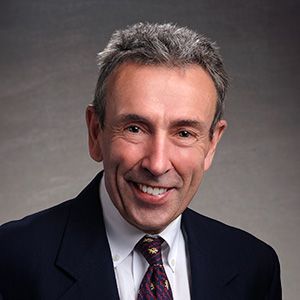Thomas Grady, MD, FACC
Dr. Thomas Grady
- Education
College of the Holy Cross (Worcester, MA) 1981-1985
- Magna Cumma Lauda
- Major: Biology Bachelor of Arts
- Worcester Community Services and Achievement Award
- Katherine Helgar's Research Award
Tufts University School of Medicine (Horton, MA) 1985-1989
- President of Alpha Omega Alpha
- Zorren's Award for Excellence in Clinical Cardiology
- Hewlon Packard Award for Excellence in Internal Medicine
- Tuft's representative to the American Medical Association
- Community Achievement and Citizenship Award
Duke University Medical Center (Burnham, NC) 1992 - 1995
- Durham Veterans Administration Hospital
- Department of Internal Medicine: Duke University
Internal Medicine Internship and Residency
- American College of Physicians Member
- American Medical Association Member
- Onondaga Medical Society Member
The Cleveland Clinic Foundation (Cleveland, OH)
Cardiology Fellowship 1995-1998
- American College of Cardiology Board-Certified Cardiologist
- Member of the American Heart Association
- Member of Society of Nuclear Cardiology
- Certified Member of Society of Echocardiography
- Military Service
United States Navy
Bethesda Naval Hospital (Bethesda, MD) 1989-1990
- Transition Internship: Lieutenant USNR
Philadelphia Naval Hospital (Philadelphia, PA) 1990-1992
- General Medical Officer: Lieutenant USNR
- Honorable Discharge in 1992
- Employment
- Cardiovascular Group of Syracuse 1998-2012
- SJH Cardiology Associates 2012-present
- Hospital Affiliations
- St. Joseph’s Hospital
- Crouse-Irving Memorial Hospital
- Research
University of Massachusetts Medical Center | Division of Hematology and Oncology (1995)
- Immunotherapy: Monoclonal Antibody Riacin A Chain Targeted to Malignant Cell Surface Antigens
College of the Holy Cross | Department of Biology (1983-1984)
- Microsomal Fatty Acyl-CoA Chain Elongation: Metabolism of Long Chain Fatty Acids
Duke University Medical Center | Department of Cardiology (1994-1995)
- Histological Changes involving Myocytes as a Result of Adriamycin Cardiotoxicity
- Peripartum Cardiomyopathy: Retrosepective Study Examining the Natural History and Prognosis of Peripartum Cardiomyopathy
The Cleveland Clinic Foundation I Department of Cardiology (1995-1998)
- Chung M., Augostin R., Asher C., et al. A Randomized Controlled Study of Atrial Overdrive Patlng for the Prevention of Atrial Flbrillatlon after Coronary Bypass Surgery: PDPS-1 Trial (submitted for publication in the Journal of American College of Cardiology)
- Chung M., Gupta N., Grady T., et al. Coupling Intervals and AtriaI Premature Depolarization Counts Prior to the Onset of Atrial Fibrilliation to patients following Coronary Artery Bypass Surgery
- Chung M., Schweikert B., Grady T., et al. A Randomized Controlled Study of Atrial Overdrive Pacing for the Prevention of Atrial Fibrillation Following Coronary Artery Bypass Surgery: POPS-II Trial
- Grady T., Clu A., Snader c., et al. The Prognostic Significance of Exercise-lnduced Left Bundle Branch JAMA 1998 279: 153-156
- Grady T., Yamadn E., Rodriguez I., et al. Preoperative Prognosis Markers Identifying Patients with Prosthetic Valve Endocardltls at Risk for Developing Major Complications
- Yamada, E., Grady, T., Rodriguez, I., et al. A Comparison of Transthoracic Echocardiography with Transesophageal Echocardiography in Prosthetic Valve Endocarditis.
- Publications
- Chung M., Augostini R., Asher C. et al. Controlled Study of Atrial Overdrive Pacing for the Prevention of Atrial Fibrillation after Coronary Artery Bypass SurgeryJACC 1997;9:67-74.
- Chung M., Schweikert B, Grady T. et al. A Randomized Controlled Study of Atrial Overdriving Pacing for the Prevention of Atrial Fibrillation after Coronary Bypass Surgery JACC 1998;7:56-60.
- Grady T., Chu A., Snader C., et al The Prognostic Significance of Exercise Induced Left Bundle Branch Block. JAMA 1998;279:153-157.


